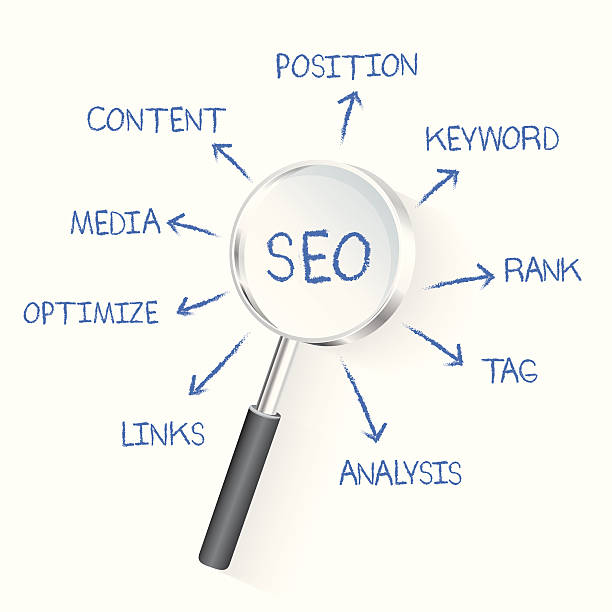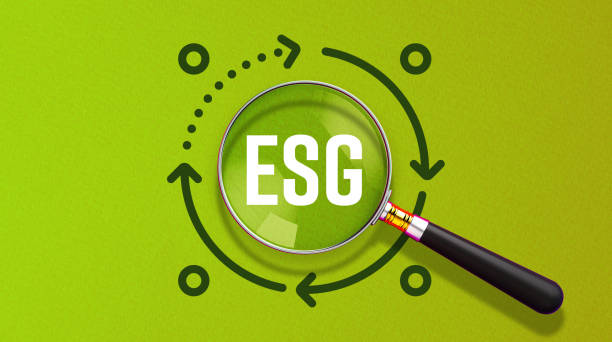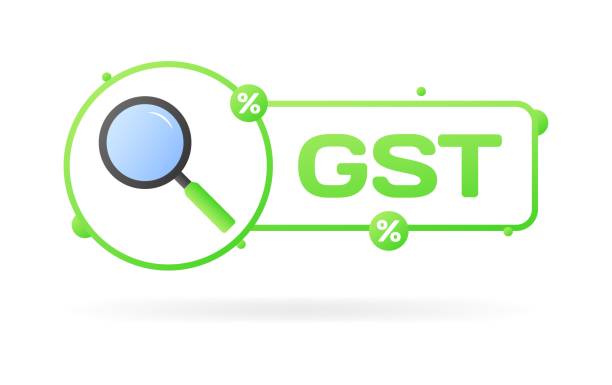An Introduction to Off-Page SEO: Its Importance and Position

#Off-page SEO or off-page search engine optimization, includes all activities you perform outside your website to improve its ranking in search engine results.
This aspect of SEO is as important as on-page SEO, and it can even be said that without a strong Off-page SEO strategy, achieving high rankings for competitive keywords will be almost impossible.
The main goal of Off-page SEO is to create positive signals and credibility for your website in the eyes of Google and other search engines.
These signals are mainly conveyed through quality inbound links (backlinks) and other online mentions of your brand.
Every quality backlink is considered a vote of confidence from another website, indicating that your content is valuable and authoritative.
Educational approaches in Off-page SEO include a thorough understanding of Google’s algorithms, competitor analysis, and discovering link-building opportunities.
Many in this field assume that Off-page SEO merely means buying backlinks, but this is a mistaken and dangerous notion.
Sustainable and successful Off-page SEO is built upon relationship building, creating valuable content, and earning natural, non-paid links.
This explanatory approach helps you better understand the why and how of Off-page SEO.
Without a strong and diverse backlink profile, even the best on-page content may get lost among the vast amount of information.
For this reason, investing time and resources in Off-page SEO is a strategic decision for any online business seeking visibility and sustainable growth in the digital space.
Is your online sales not as expected? With Rasweb, solve low sales and poor user experience problems forever!
✅ Increase visitor-to-customer conversion rate
✅ Create an enjoyable user experience and increase customer trust
⚡ Act now for a free consultation!
Link Building: The Backbone of Off-Page SEO

#Link building or link creation, is undoubtedly considered the most important component of Off-page SEO.
This process involves acquiring links from other websites to your website.
The greater the number and quality of these links, the more your website’s credibility with search engines increases.
Link quality is of paramount importance; a link from a reputable and relevant website is far more valuable than dozens of links from unreliable or irrelevant websites.
Google gives higher scores to websites that receive natural and high-quality links, as it considers these links a sign of content popularity and credibility.
The main goal in link building is to construct a diverse and powerful link profile consisting of various sources and natural anchor texts.
Anchor texts are clickable texts that enclose the link and play an important role in conveying the link’s meaning to search engines.
In the discussion of Off-page SEO, understanding different types of links is of great importance.
Links can be DoFollow or NoFollow.
DoFollow links pass SEO value, while NoFollow links typically do not pass this value, but they are still useful for diversifying the link profile and attracting traffic.
A specialized link building strategy includes identifying link building opportunities through competitor analysis, examining highly linked content, and finding websites within your niche.
Furthermore, this strategy should involve producing valuable content that naturally attracts links (link bait).
This part of Off-page SEO requires patience, meticulous planning, and continuous execution to generate tangible results in your website’s ranking.
Without a solid link building strategy, your efforts in Off-page SEO will not yield desired results.
High-Quality Link Building Techniques

#Building high-quality links is one of the most challenging yet #effective aspects of Off-page SEO.
To achieve this, various techniques exist, each capable of strengthening your backlink profile in a different way.
One such technique is Guest Writing.
In this method, you write high-quality content for another website relevant to your field of activity and, in return, receive one or two links back to your website.
This method not only provides you with backlinks but also increases brand awareness and referral traffic.
Another technique is Broken Link Building.
In this method, you find websites that have broken links (404s) to content within their niche.
Then, by creating similar or better content on your website, you suggest to the website’s administrator that they replace the broken link with your link.
Another effective method in Off-page SEO is producing valuable and shareable content that naturally encourages users to link to it.
This content can include infographics, case studies, research reports, or free tools.
A guidance strategy in this area focuses on quality over quantity.
One backlink from a reputable and relevant website is worth far more than hundreds of backlinks from spammy and low-quality websites.
Below is a table of commonly used link building techniques:
| Technique | Description | Benefits |
|---|---|---|
| Guest Writing | Writing articles for other websites | High-quality link, branding, referral traffic |
| Broken Link Building | Replacing 404 links with your content | Relevant link, communication with website administrators |
| Infographics and Visual Content | Producing engaging and shareable visual content | Natural links, going viral, attracting attention |
| Digital PR | Publishing news and press articles to earn links | High-quality links from news media, increased credibility |
Always remember that success in Off-page SEO depends on consistency and focus on creating real value.
Reviewing Google Algorithms and Their Impact on Off-Page SEO

#Google’s algorithms form the core of how websites are ranked, and understanding them is essential for any #SEO specialist.
These algorithms are constantly updated to provide users with the best and most relevant results.
Major updates like Panda, Penguin, and Hummingbird have profoundly impacted Off-page SEO strategies.
For instance, the Penguin algorithm specifically focuses on link quality and penalizes websites that use spammy or untrustworthy links.
This emphasizes the importance of quality over quantity in link building strategies.
Understanding these changes and news updates to algorithms allows you to keep your Off-page SEO strategies up-to-date.
An analytical approach to these algorithms shows that Google is moving towards a deeper understanding of content meaning and user search intent.
This means that no longer is only the number of links important, but rather the relevant and high-quality content that these links point to has gained immense importance.
These changes have forced Off-page SEO specialists to abandon old methods and adopt more natural and value-creation-based approaches.
For instance, the BERT algorithm, and later RankBrain and MUM, have improved Google’s ability to understand natural language and connections between concepts.
These developments indicate that Off-page SEO is no longer just about «getting links,» but rather about «earning credibility and trust» through off-site activities that are valuable to both users and search engines.
Awareness of these algorithms helps you prevent ranking drops caused by Google updates and maintain a safe and effective Off-page SEO strategy.
Are you worried that your company’s old website will drive away new customers? Rasweb solves this problem with modern and efficient corporate website design.
✅ Increases your brand credibility.
✅ Helps attract targeted customers.
⚡ Contact Rasweb now for a free consultation!
The Role of Social Signals in Modern Off-Page SEO

#Social Signals are not directly a #ranking factor in Google’s algorithms, but they play an indirect role in #Off-page SEO that cannot be ignored.
These signals include likes, shares, comments, and followers on social media platforms like Facebook, Twitter, LinkedIn, and Instagram.
Although Google does not directly consider these signals as backlinks, increased social activity can indirectly lead to increased visibility for your content.
This increased visibility raises the likelihood of other websites finding your content and linking to it, which ultimately benefits your Off-page SEO.
From an explanatory perspective, extensive activity on social networks can also increase direct traffic to your website, which itself is a positive signal for search engines.
A specialized approach in this area involves smart use of social networks to promote content and build an active community around the brand.
When your content goes viral on social networks, not only does significant traffic flow to your site, but the potential to acquire natural and high-quality links also increases.
Many webmasters and content creators seek popular content to reference, and this is where social signals can help you gain visibility.
Therefore, while social signals do not directly exert a direct influence on Off-page SEO, they act as an important contributing factor.
Planning a comprehensive strategy that includes both traditional link building and strong social activities will bring you the best results in off-page optimization.
Paying attention to this dimension of Off-page SEO can create a significant competitive advantage for you.
Toxic Backlinks and Ways to Identify and Remove Them

#Toxic Backlinks are one of the biggest #dangers that can nullify your #Off-page SEO efforts and even seriously damage your website’s ranking.
These links usually come from spammy, irrelevant, or very low Domain Authority (DA) websites and may have been created in bulk and unnaturally.
Identifying these links is the first step to combating them.
Backlink analysis tools like Ahrefs, Semrush, Moz, and Google Search Console can help you identify these links.
They provide a report of all inbound links to your website, and some even have the capability to identify toxic links.
A guiding and analytical strategy involves periodic review of the backlink profile and quick reaction to suspicious links.
After identifying toxic backlinks, the next step is to remove or disavow them.
There are various methods for this.
The first and best method is to contact the administrator of the website from which the toxic link originates and request its removal.
This method may not always be successful, especially with spam websites.
If this method is not effective, you can use the Disavow Tool in Google Search Console.
By using this tool, you inform Google that you do not want these specific links to affect your website’s ranking.
This tells Google that you are aware of these links and do not endorse them.
Regular cleanup of the backlink profile is an important part of maintaining and improving Off-page SEO to prevent Google algorithmic penalties.
This process is a vital part of maintaining the health of your website’s Off-page SEO and should not be overlooked.
Review of Practical Tools for Off-Page SEO Analysis

#Off-page SEO analysis without using the right #tools is difficult and almost impossible.
These tools help you examine your and your competitors’ backlink profiles, discover new link-building opportunities, and monitor the overall health of your website’s Off-page SEO.
Among the most important and widely used of these tools are Ahrefs, Semrush, Moz Pro, and Google Search Console.
Each of these tools has its unique features and provides valuable specialized and analytical information crucial for a comprehensive Off-page SEO strategy.
For example, Ahrefs is renowned for its extensive backlink database and competitor analysis tools, while Semrush offers a wide range of SEO tools including keyword research, backlink analysis, and rank tracking.
Google Search Console is also a free and essential tool from Google itself that provides direct information about how the search engine views your website, including reports on inbound and outbound links.
For an educational strategy in the field of Off-page SEO, familiarity with these tools and how to use them is absolutely essential.
Below is a comparative table of some of these tools:
| Tool | Main Features Related to Off-Page SEO | Highlights |
|---|---|---|
| Ahrefs | Deep backlink analysis, competitor research, broken link discovery | One of the largest backlink databases, very powerful |
| Semrush | Backlink analysis, Disavow tool, link building, competitor analysis | Complete SEO package, strong user interface |
| Moz Pro | Link Explorer, Domain Authority (DA), Page Authority (PA) | Unique credibility metrics (DA/PA), practical tools |
| Google Search Console | Link reports, Disavow tool, search performance | Official and free Google tool, direct information from Google |
Using these tools allows you to continuously monitor your Off-page SEO performance and adjust your strategies based on accurate data.
Controversial Content Strategy for Link Attraction

#Controversial Content, or in other words, #discussion-provoking content, is a powerful strategy in #Off-page SEO for attracting natural links and increasing social shares.
This type of content, by presenting bold, challenging, or even controversial viewpoints, compels users to react.
The main goal is to create a discussion around a topic that can provoke various opinions.
This difference in perspectives leads to increased engagement, comments, shares, and ultimately, linking from other websites and blogs seeking to participate in these discussions.
Of course, using this strategy requires precision and subtlety, as overly aggressive or unsubstantial content can have counterproductive results.
For success with controversial content in Off-page SEO, it is necessary that the chosen topic is both relevant to your field of activity and has the potential to generate discussion and exchange of opinions.
This content can be presented as in-depth articles, case studies, analytical reports, or even challenging videos.
It is important that your content is analytical and well-reasoned, even if it presents a different viewpoint.
This approach helps your website be recognized as a thought leader in the industry, which in turn helps attract more natural and authoritative links.
The appeal of this strategy lies in its potential to go viral; content that spreads rapidly across social networks and captures media attention will have a higher chance of receiving links from reputable sources.
This method of Off-page SEO, instead of traditional link-building methods, emphasizes attracting attention and creating genuine value.
Does your current website showcase your brand’s credibility as it should? Or does it scare away potential customers?
Rasweb, with years of experience in professional corporate website design, is your comprehensive solution.
✅ A modern, beautiful, and brand-identity-aligned website
✅ Significant increase in lead and new customer acquisition
⚡ Contact Rasweb now for a free corporate website design consultation!
Monitoring and Analyzing Off-Page SEO Campaigns

#Continuous monitoring and #analysis of #Off-page SEO campaigns are an inseparable part of a successful strategy.
Without accurate performance measurement, it will be impossible to identify strengths and weaknesses and optimize activities.
This process involves continuous monitoring of keyword rankings, the quality and quantity of inbound backlinks, referral traffic, and other related metrics.
Using tools like Google Analytics to examine referral traffic and Google Search Console to monitor inbound links and site performance in search results is essential.
Additionally, paid tools like Ahrefs and Semrush allow you to deeply analyze your and your competitors’ backlink profiles and measure the progress of your Off-page SEO campaign.
At this stage, an analytical and guidance approach is highly important.
You should regularly prepare reports on Key Performance Indicators (KPIs).
These metrics can include the number of new backlinks, organic traffic growth, improved rankings for target keywords, and a reduction in spammy links.
By analyzing this data, you can determine which Off-page SEO strategies have been more effective and which need adjustment.
For example, if you observe that the number of your quality backlinks is increasing, but your ranking hasn’t improved sufficiently, you might need to revise your anchor texts or the quality of the content the links point to.
Also, promptly identifying toxic links and taking action to Disavow them is a crucial part of monitoring the health of your Off-page SEO.
This continuous process ensures that your Off-page SEO strategies are always on the right track and moving towards your business goals.
The Future of Off-Page SEO and Upcoming Trends

#The future of Off-page SEO, like other aspects of #digital marketing, is rapidly changing and evolving.
With continuous advancements in artificial intelligence and machine learning, search engine algorithms are becoming more complex and intelligent.
This means that spam tactics and artificial link building will no longer be effective.
News and new trends indicate that the focus will increasingly be on E-A-T (Expertise, Authoritativeness, Trustworthiness).
These three factors are increasingly important for Google in ranking websites, and Off-page SEO plays a key role in strengthening them.
For example, acquiring links from authoritative websites and experts in your field shows Google that you are a credible and trustworthy source.
In addition to E-A-T, high-quality and unique content that addresses users’ real needs will continue to be king.
Off-page SEO in the future will focus more on Digital PR, collaborations with influencers, and building online communities.
In other words, earning natural links and creating positive brand signals through off-site activities will gain more importance.
This engaging yet strategic approach emphasizes the quality and relevance of links rather than solely focusing on their quantity.
Search engines are increasingly capable of distinguishing natural links from manipulated ones, so any attempt to deceive them is doomed to fail.
Off-page SEO specialists should focus on building a strong and valuable brand that naturally attracts links and references, instead of seeking shortcuts.
This long-term perspective ensures sustainable success in the ever-changing world of SEO.
Frequently Asked Questions
| Row | Question | Answer |
|---|---|---|
| 1 | What is Off-Page SEO? | Off-page SEO refers to a set of actions performed outside your website to improve its ranking in search engines. These actions include backlink building, social media presence, branding, and so on. |
| 2 | Why is Off-page SEO highly important? | Off-page SEO indicates to search engines that your website is credible, popular, and trustworthy. High-quality backlinks from reputable sites are a strong signal for better ranking and help increase your domain authority. |
| 3 | What are the most important components of Off-page SEO? | The most important components of Off-page SEO include: Link Building, Content Marketing, Social Media Marketing, Influencer Marketing, and Online Reputation Management. |
| 4 | What is a backlink and why is it important for Off-page SEO? | A backlink is a link that points from another website to your website. These links act as a “vote of confidence” in Google’s eyes and indicate the credibility of your content. The more backlinks and the higher their quality, the better your site’s ranking will be. |
| 5 | What are the types of backlinks in terms of SEO impact? | The two main types of backlinks are DoFollow and NoFollow. DoFollow backlinks pass authority (Link Juice) and directly impact ranking. NoFollow links do not pass authority but can still generate traffic and help make the link profile appear natural. (Also UGC and Sponsored) |
| 6 | How can high-quality backlinks be created for your site? | To build high-quality backlinks, methods such as: creating excellent and shareable content, guest posting on relevant and reputable sites, broken link building, Digital PR, and analyzing competitor backlinks can be used. |
| 7 | What are Toxic Backlinks and how do they affect a site? | Toxic or spam backlinks are links that point from low-quality, spammy, or irrelevant websites to your site. These backlinks can harm your site’s ranking and even lead to penalties by Google’s algorithms. |
| 8 | What is the role of social networks in Off-page SEO? | Although social signals (likes, shares, etc.) are not direct ranking factors, they do contribute to Off-page SEO. They increase content visibility, drive direct traffic to the site, and ultimately enhance the chance of acquiring natural backlinks and improving brand recognition. |
| 9 | What is the importance of diversity in a backlink profile? | Diversity in a backlink profile means that your links come from various sources (blogs, forums, news sites, directories), with diverse anchor texts, and a mix of DoFollow and NoFollow links. This diversity signals to Google that your link building is natural and organic. |
| 10 | What are common mistakes in Off-page SEO that should be avoided? | Common mistakes include: buying backlinks in large volumes and from low-quality sources, over-optimization with target keywords, neglecting quality in favor of quantity in backlink building, lack of diversity in the link profile, and ignoring toxic backlinks and not disavowing them. |
And other advertising services of Rasweb Advertising Agency
Smart Advertising Campaign: Revolutionize customer acquisition with key page optimization.
Smart Data Analysis: Revolutionize click-through rates with custom programming.
Smart Digital Advertising: A professional solution for increasing website traffic with a focus on key page optimization.
Smart Content Strategy: Designed for businesses looking to manage campaigns through attractive UI design.
Smart Marketing Automation: A fast and efficient solution for digital branding with a focus on SEO-driven content strategy.
And over hundreds of other services in internet advertising, advertising consultation, and organizational solutions
Internet Advertising | Advertising Strategy | Advertorial
Sources
Comprehensive Guide to Off-Page SEO
What is Off-Page SEO?
What is a Backlink?
Off-Page SEO Training
Are you looking for a major leap in the online world? Rasweb Afarin creates a powerful and effective presence for your business by providing innovative digital marketing solutions, including fast website design.
📍 Tehran, Mirdamad Street, next to Bank Markazi, Southern Kazeroon Alley, Ramin Alley, No. 6



